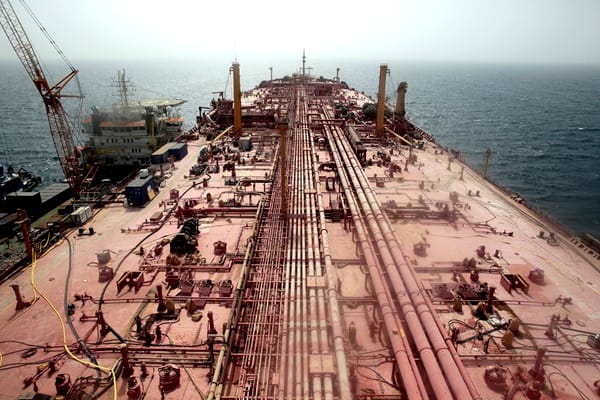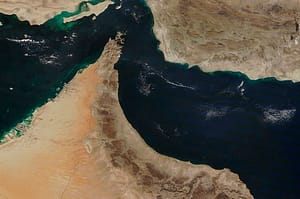Following the US attacks on Iran’s nuclear facilities overnight Tehran’s Parliament has approved to close the Strait of Hormuz.
The final decision rests with the Supreme National Security Council, Iran’s Press TV reported on Sunday.
“Closure of the Strait is on the agenda and will be done whenever necessary,” said Revolutionary Guards Commander and lawmaker Esmail Kosari, told Iran’s Young Journalist Club.
Retired Indian Navy spokesperson Captain D K Sharma warned, “Iran’s threat to block the Strait of Hormuz could lead to significant disruptions,” Mathrubhumi reported.
Sharma warned that this will push up insurance costs and lead to rerouting shipments which will be more expensive.
Sharma added, “Oil prices are expected to surge due to increased tensions in the region, with some analysts predicting prices to reach $80 – $90 per barrel or even $100 per barrel if Iran responds with retaliatory measures,” which will push investors to invest elsewhere such as safe havens like gold or silver.
Read more related news:
Iran warns ‘every American is a target’ and US bases in the Middle East are a ‘point of vulnerability’
US B-2 stealth bombers obliterate Iran’s nuclear sites using ‘bunker busters’ and 30 tomahawk missiles
deVere Group warns markets will drop quickly if the US enters Israel-Iran
According to the US Energy Information Administration (EIA) oil “Flows through the Strait of Hormuz in 2024 and the first quarter of 2025 made up more than one-quarter of total global seaborne oil trade and about one-fifth of global oil and petroleum product consumption.
“In addition, around one-fifth of global liquefied natural gas trade also transited the Strait of Hormuz in 2024, primarily from Qatar.”
Should the passage be blockaded shipping in the Strait of Hormuz will be disrupted and cause global problems for oil and the LNG trade.
Price will undoubtedly surge this will cause a knock-on effect on prices for commodities, food, fuel and energy among other things.
The EIA says that Saudi Arabia’s Aramco “operates the 5 million barrels per day East-West crude oil pipeline, which runs from the Abqaiq oil processing centre near the Persian Gulf to the Yanbu port on the Red Sea.”
United Arab Emirates (UAE) has “1.8 million-b/d pipeline linking onshore oil fields to the Fujairah export terminal in the Gulf of Oman,” and in 2024 around 20 million barrels was shipped through the Strait of Hormuz every day.
According to the EIA, “84% of the crude oil and condensate and 83% of the liquefied natural gas that moved through the Strait of Hormuz went to Asian markets in 2024.
“China, India, Japan, and South Korea were the top destinations for crude oil moving through the Strait of Hormuz to Asia, accounting for a combined 69% of all Hormuz crude oil and condensate flows in 2024.”





Leave a Comment